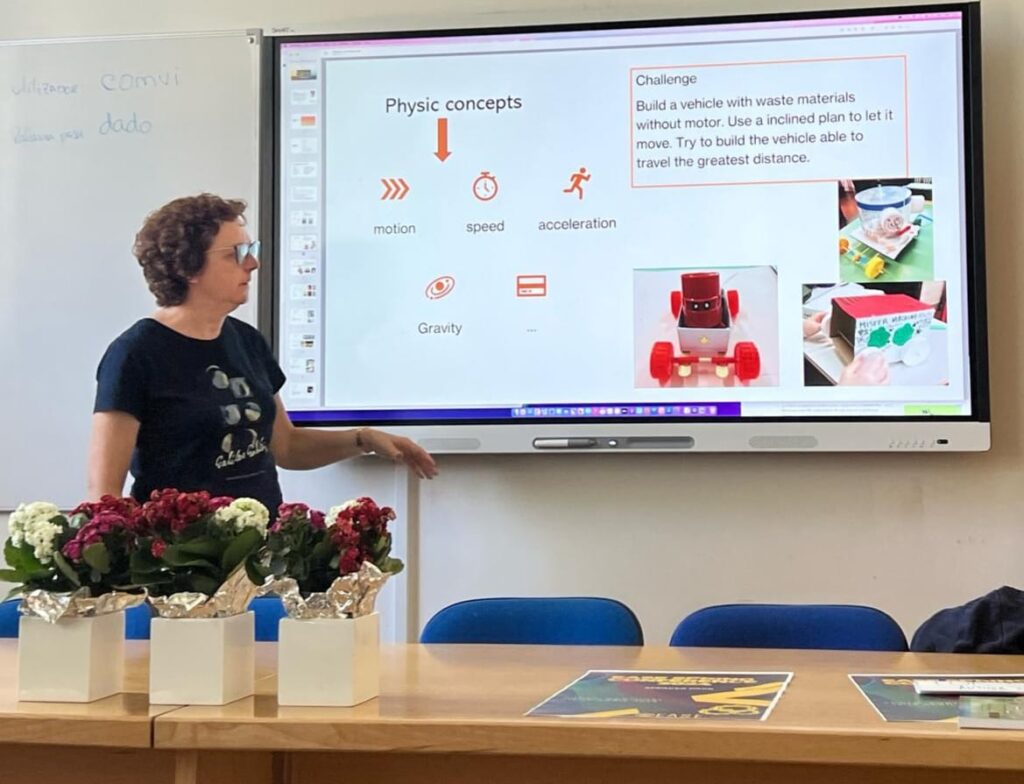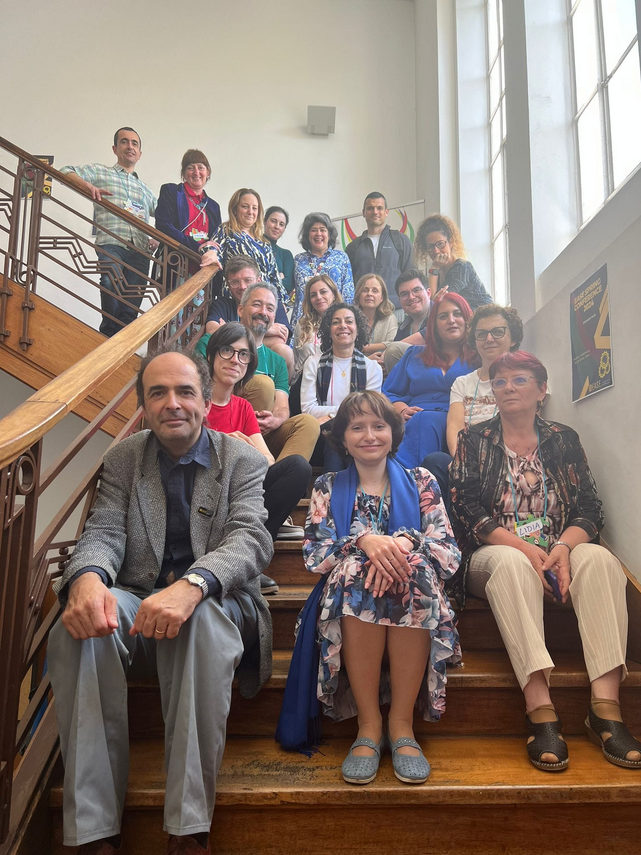EASE serves as a hub for fostering collaboration, professional development, resource sharing, networking and research within the European STEAM education community.
The EASE spring conference was organized for the second time in Porto at the Rodrigues de Freitas Secondary School, between April 15-18, 2024 and facilitated the exchange of educational materials, teaching strategies among its members.
It also provided access to a diverse range of resources that can support educators in designing engaging and effective STEAM learning experiences for their students.
During the organized conference, participants from EU and non-EU countries gathered and it facilitated collaboration and cooperation between individuals and representatives of organizations working in STEAM fields.
At this conference materials were presented by:
- Nelson G. – An educational community makerspace project at school to develop social and digital skills in the youth community (what, who, why, how?)
- Christos K. -Design cycle as a framework for STEAM projects/ SEGA – Shaping early childhood steam education
- Pieter V. L. -Shaping Futures: Crafting Tomorrow’s Innovators Today at UCLL’s STE(A)M Academy
- Joanna S. -BioArt – combining science, art and new technologies in the education process of children and adolescents
- Roberta T. – Code4Earth
- António P. F./ Hugo F. – Unlocking the STEAM Potential: A Creative Biofilm Exploration for Middle and high School Educators
- Mustafa K. A. – Creating Sustainable Robots from Recycled Materials
- Samuel B. – Tinkercad Circuits: simulating STEM projects
- Nichole F. – Building Student Agency with a 3D Printing Club
- Madhumalti S. – How to use coding to impart the 4Cs of education – creativity, critical thinking, communication and collaboration
- Maja V. – Empowering education through AI for interactive learning experiences
- Chrysanthi K. -Youth participation in urban design and governance for the NEB using co-creation methodologies and Minecraft
- Daniela B. – From Earth to Moon and beyond
- Mariapia B. – Tinkering and Physics
- Mirko L. -STEAM meets teachers: transatlantic educator dialogue as a platform for transnational teacher collaboration, From Cognitive to Connected: Transforming STEAM Education with a Social and Motivated Mindset
- Lidia R. – Scratch extension to create real-life projects – Micro:Bit
- Paulo T. – Programming and machine learning in STEAM activities
- Natalie L.C. – STEAMMERSION: Immersive learning through Malta’s STEAM environment
- Paul C. – Digital tools for classroom engagement in STEAM Education
- Theodora T.- AI projects for the Greek Open Educational Technologies Competition
- Ana L.- Final reflection and future plans: Team work with Europe
By bringing together speakers from different backgrounds and disciplines within the EASE conference, it will contribute to the progress of STEAM education and to improving the practical skills of the participants.
 Participation in the “EASE – European Network of STEAM Educators” conference provided numerous benefits for educators, researchers, policy makers and professionals involved in STEAM education.
Participation in the “EASE – European Network of STEAM Educators” conference provided numerous benefits for educators, researchers, policy makers and professionals involved in STEAM education.
During the spring conference, STEAM education experts and leaders met, where ideas were shared and collaborations established that could lead to future projects or partnerships.
The conference sessions were based on workshops with students and teachers, as well as the support of multimedia presentations that offered opportunities for the accumulation of new knowledge and professional development. The participants learned about innovative teaching methods, digital tools, research results, but also about the best practices in STEAM education, which they can put into practice in their school.
Attending these sessions helped participants stay abreast of the latest research, technologies and policies shaping the STEAM field.
The diversity of the materials presented at the EASE spring conference is an inspiring and motivating experience, which offered the participants new perspectives, ideas and new approaches to STEAM education. Acquiring information from speakers, interacting with fellow educators and exploring innovative projects can reinvigorate participants’ passion for teaching and learning new things, which they can use in the classroom with students.
Participants identified potential collaborators, were able to exchange information, contact address and initiated discussions about future collaborations or joint projects.
The presentation of materials and the implementation of some activities in class with both students and teachers will increase the visibility and professional recognition of the participants within the EASE – STEAM educational community.

